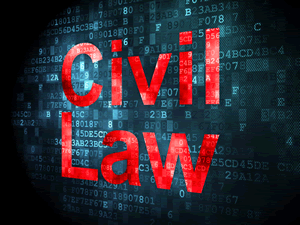What are my rights as an apartment renter?
Each state has statutes and laws which govern the rights which exist between tenants and their landlords. For example, in the State of Texas these rights are outlined in Chapter 92 of the Texas Property Code, and by various court rulings. Other rights may be documented in the rental agreement the tenant signed prior to leasing the property.
Recently on our legal forum a renter asked, “I have been living in my apartment without air conditioning for almost 30 days. I live in Texas and it is over 100 degrees in the summer. It is starting to affect my health and safety. What are my rights?”
Laws about health and safety
Historically, under English common law, the tenant had few rights with respect to property repairs. In fact, a tenant’s duty to pay rent was independent of the landlord’s duty to repair without an agreement or statute to the contrary. Changes have been made over the last 30 years, however, which have improved the rights of tenants.
Now, under Texas law, landlords have the legal obligation to “make a diligent effort to remedy or repair a condition” in which the following is true:
- The landlord has been notified of the condition by the tenant.
- The tenant is current with their rental payments.
- The condition materially affects the health and safety of an ordinary tenant.
- The condition arises from the landlord's failure to provide and maintain in good operating condition device to supply hot water of a minimum temperature of 120 degrees Fahrenheit.
If the above requirements are met, Texas laws allow a Justice of the Peace to immediately order repairs costing less than $10,000. This eliminates the need for the tenant to hire a lawyer or to try to obtain their own repair order in court.
Exceptions to Health and Safety Obligations
There are, however, exceptions to the health and safety regulations and the duties of the landlord. For example, in some instances the landlord and the tenant may have a written agreement that the tenant will make specific repairs. In some cases these repairs may be paid for by the tenant (i.e., the tenant makes all repairs under $50). In other cases, the tenant may be required to make the repairs and then subtract the costs from their rent.
Exceptions may also exist under this statute if the damage to the property was caused by the tenant or their guest’s carelessness, abuse of the property, or negligence.
What do I do if the repairs are not made?
If a landlord refuses to repair a property the tenant has several legal remedies. They may have the legal right to end the lease, file suit against the landlord, or to make the repairs and deduct the costs from the rent. The method allowed and what type of notification must be sent prior to taking actions can vary by state.
So what about my air conditioner?
So let’s go back to the question at hand. In Texas and in most states all landlords have a responsibility to make sure an apartment or living facility is habitable, which means “the conditions are fit for living.”
As discussed above, this includes repairing issues which affect the health and safety of the tenant. For example, habitats must have hot water, flushing toilets, non-leaking roofs and walls, heat, doors that lock, and a place to dispose of garbage.
Functioning air conditioning may, however, be considered an amenity, especially if you live in a state or city with low temperatures.
What about August in Dallas, Texas? There are some Texas judges who have ruled that air conditioning in August can affect the health and safety of some residents. Other judges, however, have decided it is not a necessity and may rule against the tenant. In that case, it may be time to get out the box fan.
Related Pages
Latest Question
If I quit my job does my employer have to pay vacation pay?
Unused vacation time may be paid but it will depend on your state’s laws, your employment contract and any collective bargaining agreements.Category: Employment Law



